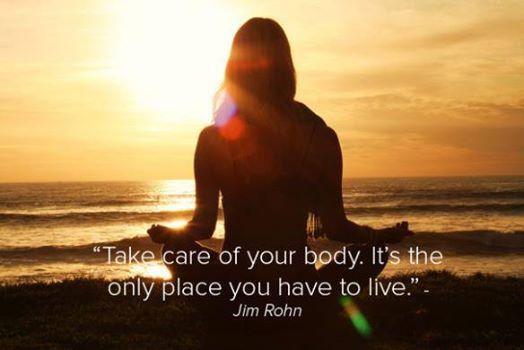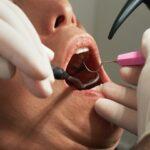We understand that it might be challenging to break unwanted behaviours. But when it comes to developing good habits, the accumulation of seemingly little choices is what matters most over time.

 Are You Looking After Yourself?
Are You Looking After Yourself?OK, so you are a grownup and can take care of yourself, but how well do you take care of your health? Looking after your health isn’t something you should do after your health crashes or perhaps relegate to the weekends when we you have more time.
You’ll need to work on your health is something which needs to be long-term daily. It is the little things which you do regularly which all add up to either build health, or slowly erode it.
“Healthy living” refers to maintaining a healthy lifestyle and developing healthy habits. Although it can be challenging, there are steps you can do to improve your health. Finding unhealthy behaviours and learning new, healthy ones to replace them is a crucial first step. A few examples include:
According to a 2015 study, the 9 major aspects of one’s lifestyle that affect your health belong to the following categories:
1. Diet and the Body Mass Index (BMI) Diet is the most important aspect of lifestyle and has a direct and beneficial association with one’s overall health. Inadequate nutrition and the health problems that result from it, such as obesity, are a prevalent concern in urban settings. The body mass index (BMI) is one indicator of an unhealthy lifestyle. The urban lifestyle causes nutritional issues, such as the consumption of unhealthy meals and fast food, which in turn increases the risk of health problems, including cardiovascular disease (study).
2. Exercise – physical activity: This component of a healthy lifestyle is essential for addressing a wide range of health issues (6). The combination of consistent exercise and a nutritious diet leads to improvements in health. A good deal of research emphasises the connection between leading an active lifestyle and experiencing happiness. Studies show there appears to be a linear relation between physical activity and health status.
3. Sleep. Getting enough sleep is essential to maintaining a healthy lifestyle. It is impossible to separate sleep from living. Sleep problems have a variety of negative effects, not only on the individual but also on society, the economy, and their own health. There is a correlation between sleep and mental and physical health, and lifestyle choices may impact sleep. Study.
4. Sex. Sexual behaviour: Having regular sexual encounters is important in leading a healthy and balanced life according to studies. Intimacy can be beneficial for your heart and circulation as you get older. Dysfunctional sexual relationships, which have a substantial impact on both mental and physical health, plague many of the world’s cultures. It is possible to say that dysfunctional sexual relationships may lead to a variety of family difficulties and diseases connected to sexual activity, such as sexually transmitted diseases like HIV.
5. Substance abuse. Addictive behaviours. They have widely recognised that dependence on drugs or alcohol is a harmful way of life. Using tobacco products and other substances can lead to a variety of health issues, including coronary heart disease, asthma, cancer, and even brain damage. Substance abuse is rampant in society today. Many use alcohol, illegal drugs, and/or prescribed medications in ways that produce harms to themselves and those around. Studies have found that these harms are significant financially, with total costs in 2017 of more than $420 billion annually and more than $120 billion in healthcare.
6. Pharmaceutical drug abuse. Abuse of medicine is more common than you may think, and it is a bad way of living as far as your body is concerned. Self-medicating, sharing medications, using medications without a prescription, doctors prescribing too many drugs, or prescribing high dosages of one or more drugs, prescribing unnecessary drugs, having poor handwriting on prescriptions, ignoring poor drug combinations or harmful effects of drugs, and failing to explain the side effects of drugs are all examples of poor behaviours related to drug use and medical care. Mistakes happen frequently, and people can die. Drugs are expensive too, a 2020 study found that over a million Americans will die in the next decade because of their inability to afford pharmaceutical drugs.
7. Technology and Internet use. Implementation of contemporary technological methods: The development of more advanced technology has made the lives of humans easier. However, inappropriate use of technology may have unintended and potentially negative repercussions. For instance, utilising a computer or other electronic device up to midnight may have an influence on how one sleeps and can also disrupt sleep patterns. There is even a correlation between compulsive mobile phone usage and symptoms of depression.
8. Relaxation. Leisure and pastime activities are within the category of lifestyle factors. The decision to forego leisure time might have unfavourable effects. A person’s health is in jeopardy when their planning becomes chaotic and their leisure activities are harmful.
9. Study. Studying is a kind of mental and spiritual activity. Incorporating study into your way of life has the potential to improve both your physical and mental health. For instance, the incidence of dementias like Alzheimer’s disease is lower among individuals with higher levels of education or study. Meditation or study may slow the progression of dementia.
 The moment I turned sixty, I doubled down on my efforts to ensure that I would have a long and healthy life. My goal is to preserve the best possible level of health for the greatest amount of time, and I am quite certain that a good many reading this page may well be working towards the same aim. You want to live a long, satisfying, and healthy life as you can.
The moment I turned sixty, I doubled down on my efforts to ensure that I would have a long and healthy life. My goal is to preserve the best possible level of health for the greatest amount of time, and I am quite certain that a good many reading this page may well be working towards the same aim. You want to live a long, satisfying, and healthy life as you can.
The recent advances in medicine, surgery, and public health can extend our lives by a certain number of years; but what about enhancing our overall quality of our health? Your “life span” is the total number of years they expect you to live. What we term the “health span” is the number of years that you can keep up a healthy lifestyle, free from pain, inflammation, stiffness, and tiredness. You want your health span to be equivalent to the length of how long you actually live, your lifespan. Do you want to live a long life, free from pain, from taking several drugs a day? Then you’ll need to combine a healthy diet and lifestyle to achieve that aim!
The new science of living for a long time incorporates the fields of medicine known as restorative medicine and regenerative medicine. The principles of functional medicine serve as the basis for this emerging field of study. It is not sufficient to just treat sickness; rather, the emphasis should be on building resilience and energy over the long term.
If you’ve done the research and get the impression that your genes are working against you, there is an even more powerful reason to centre your attention on the scientific principles that drive the formation of your health. How you live and what you eat.
According to the results of a comprehensive study carried out in Europe (known as EPIC), adopting only four fundamental behaviours may significantly lessen your risk of developing age-related conditions such as Alzheimer’s disease, diabetes, cardiovascular disease, and cancer.
 These four behaviours prevent 93 percent of of diabetes, 81 percent of heart attacks, 50 percent of strokes, and 36 percent of cancer on their own. People who regularly misbehave invariably end up paying the price as they get older. They can get sick well before their time. Can you behave?
These four behaviours prevent 93 percent of of diabetes, 81 percent of heart attacks, 50 percent of strokes, and 36 percent of cancer on their own. People who regularly misbehave invariably end up paying the price as they get older. They can get sick well before their time. Can you behave?
Here now follow a handful of some of the most basic tips I recommend for those starting out on their path towards great health. Call it the “beginners” level. This is just where good health begins. Once you get these basics to become regular daily habits and your awareness of your body and how it reacts with your environment increases, you’re ready to move on to more advanced concepts of building health and wellness. More about that later, because most patients I spent time with found it quite challenging – just getting these four basic behavioural concepts right.
 Always be aware of your posture. Always.
Always be aware of your posture. Always.
Look at how you are sitting right now, slumped over in a chair? Be mindful of how you sit and stand. It will almost certainly have long-term effects on how you breathe, as well as determining your musculoskeletal health. Poor posture also leads to digestive problems, even constipation. Make sure you get up regularly from your chair and move around. Don’t be a slouch potato, your body won’t like it. You’ll probably end up with either a sore neck, lower back or both. Ouch!
 Become more conscientious.
Become more conscientious.
What does it mean to be conscientious? It is the capacity for self-control, efficiency, organisation, and becoming goal-orientated. Studies have found that conscientious individuals have lower blood pressure, less mental health issues, are happier in general, have a lower chance of diabetes, heart disease, and less joint issues.
Studies show that his may be because conscientious people are more likely to lead a successful work life or take good care of their health while also being less likely to conduct risky actions, or respond poorly to stress.
It is possible to cultivate conscientiousness at any stage of your life by doing actions as simple as getting to bed early, going for regular walks or exercise, clearing your computer’s desktop, following a work schedule, or arriving on time for meetings, appointments or work.
 How’s that bowel going? Are you “going” every day?
How’s that bowel going? Are you “going” every day?
A few people have asked me: “Eric, what kind of job have you got, talking about bowel motions all day?” Well, somebody has got to bring it to your attention! Check your motions regularly. Do you go every day? Is it an effortless motion? do you skip a day? Get it sorted. Much ill health has its origins in poor bowel function. Get onto it. Like paying your tax – you really should get any bowel problem sorted sooner rather than later. Have you read the Constipation article?
 Drink plenty daily.
Drink plenty daily.
Are you really doing it? A friendly reminder that coffee, tea, alcohol and fizzy drinks actually dehydrate your body. Drink plenty of pure water, or soups, bone broths, etc. More so in summer, less in winter. Are you drinking enough? Enough for your body to produce urine that is clear (not too yellow) or urine that has a strong odour? Increase your intake of water for several days, especially if you are older or take different medicines. If there is a noticeable decrease in back pain with increased water intake, you know your kidneys were suffering. See your doctor for a kidney function test (blood test). Here is a page about different drinks
 Shower or bath daily, no exceptions.
Shower or bath daily, no exceptions.
Keep your body clean & fresh every day. Take a long shower or soak in the bath every day. It’s one of the best ways to relax and unwind, and will help you keep stress levels under control. Water has a calming effect on your nervous system and the musculoskeletal system. You’ll feel better and sleep a lot more soundly if you take a bath daily. Try not to use personal care products that contain chemicals. Many brands exist today that contain natural ingredients, and I’d advise you to consider using them instead of a product out of the bargain bins from Costco or Walmart.
 You need to get plenty of rest and sleep.
You need to get plenty of rest and sleep.
While it is not always possible, try to get to bed around the same time. It will be in most cases. Go to bed when you feel tired. Forget looking at the clock. Head for bed when you feel tired or yawn, or rub your eyes. What is the best time? There is no “best time”! It could be 8.00 pm, 9,00 pm or 10.30 pm.
The amount of sleep you need depends on your needs and demands you have placed on your body and mind. If you are suffering from stress, you’ll probably need more sleep, a lot more. Going to bed to rest doesn’t mean Netflix on the iPad, it means actually sleeping! You can read more about how to fix insomnia here, and how overactive adrenal glands (the glands of stress) can lead to sleeping problems. You can read more about coping with stress here.
Doesn’t it feel good when you get between the clean sheets with a clean body? You’ll almost certainly sleep better if you bath or shower before bed. Sleep is so important for your health. In my years in the clinic, I discovered that way too many people have sleeping issues,it’s absolutely crazy! Work on building good sleeping habits as much as you do on achieving good bowel habits. It will add so much more quality to your life. Make it a habit of getting up early, 6.30 am to 7.00am is a pretty good time. I’ve often found patients who have the biggest fatigue and weight issues, have a tendency to be the ones who stay up late, or those who eat at odd hours around their stressful lifestyle. These folks don’t enjoy getting up too early!
“A good laugh and a long sleep are the best cures in the doctor’s book.” – Irish proverb
 Dental hygiene is essential.
Dental hygiene is essential.
Just because you may get older, don’t neglect your teeth! Healthy teeth and gums are essential to keep your health in the best of condition. Remember, gently brush and carefully floss your teeth at least once, better twice daily. Use a soft toothbrush, but preferably use an electric toothbrush, the portable kind with a rechargeable battery, and replace the head often. Look at your tongue. Does it look cracked, coated, or not quite pink? Are the edges of your tongue scalloped? Maybe it’s time for a cleanse or detox. Your breath and tongue should be clean, a clear sign of a well functioning digestive system. When people comment about your “bad breath”, maybe it’s time to see a dental hygienist. Read about dental diseases here.
 Cook healthy meals daily, use fresh ingredients. Always.
Cook healthy meals daily, use fresh ingredients. Always.
There is little point leading a healthy lifestyle if it doesn’t include eating healthy, every day. What did you have for lunch or supper today? Can you improve on this? Was it a healthy or take away choice? Make the most of the wonderful fresh foods that are available to you. Do you have access to fresh fruits and vegetables, lean proteins, beans, seeds, nuts and legumes? Probably. Check out our Recipe section for some healthy inspiration. You can read a lot of information on this website about healthy foods and the best ways to prepare and cook your meals. You can read a lot more about healthy eating here.
 Do something every day you enjoy!
Do something every day you enjoy!
If you feel happy, your body is less stressed, and the less stress your body is under, the less susceptible you are to acute or chronic illness. Make it a point of doing something fun each day, no matter how small it may be. Taking pleasure in the “simple” things in life, like a catch-up and coffee with a friend, a conversation. A nice walk in a park, taking time out to read a wonderful book, there are countless ways daily for you to take a little time out and do something enjoyable. Check out: 6 Things That Make You Happier.
 Take a walk every day.
Take a walk every day.
Make a habit of going for a walk most every day. You may feel like several miles one day, and only a short walk the next day. The key thing is to make it a habit you perform on nearly every day. Your mood will improve, so will your stress levels. Your digestive system will benefit, so will all your muscles, heart and brain. And it costs nothing except your time. It can help clear your head and put you in a more upbeat mood.
Give your face a thorough clean with warm water daily
 Is it just a “lady’s thing”? I doubt it, it is a fantastic way of beating tension and is great for your skin. You will look and feel years younger. Remember to moisturise your skin regularly, it pays big dividends as the years roll by. I recommend a good natural moisturiser, like Aloe Vera or jojoba oil, avoiding chemical based skin care products. Personally, I prefer to use a few drops of pure essential oil instead.
Is it just a “lady’s thing”? I doubt it, it is a fantastic way of beating tension and is great for your skin. You will look and feel years younger. Remember to moisturise your skin regularly, it pays big dividends as the years roll by. I recommend a good natural moisturiser, like Aloe Vera or jojoba oil, avoiding chemical based skin care products. Personally, I prefer to use a few drops of pure essential oil instead.
Longevity may seem beyond your control, but many healthy eating and lifestyle habits may lead you to a ripe, old age. These include not smoking, drinking coffee, tea, or green tea, exercising, getting enough sleep, taking time out to relax & understanding stress in your life, and limiting your alcohol intake. When taken together, these healthy habits can boost your health and wellbeing and put you on the path to a long life.